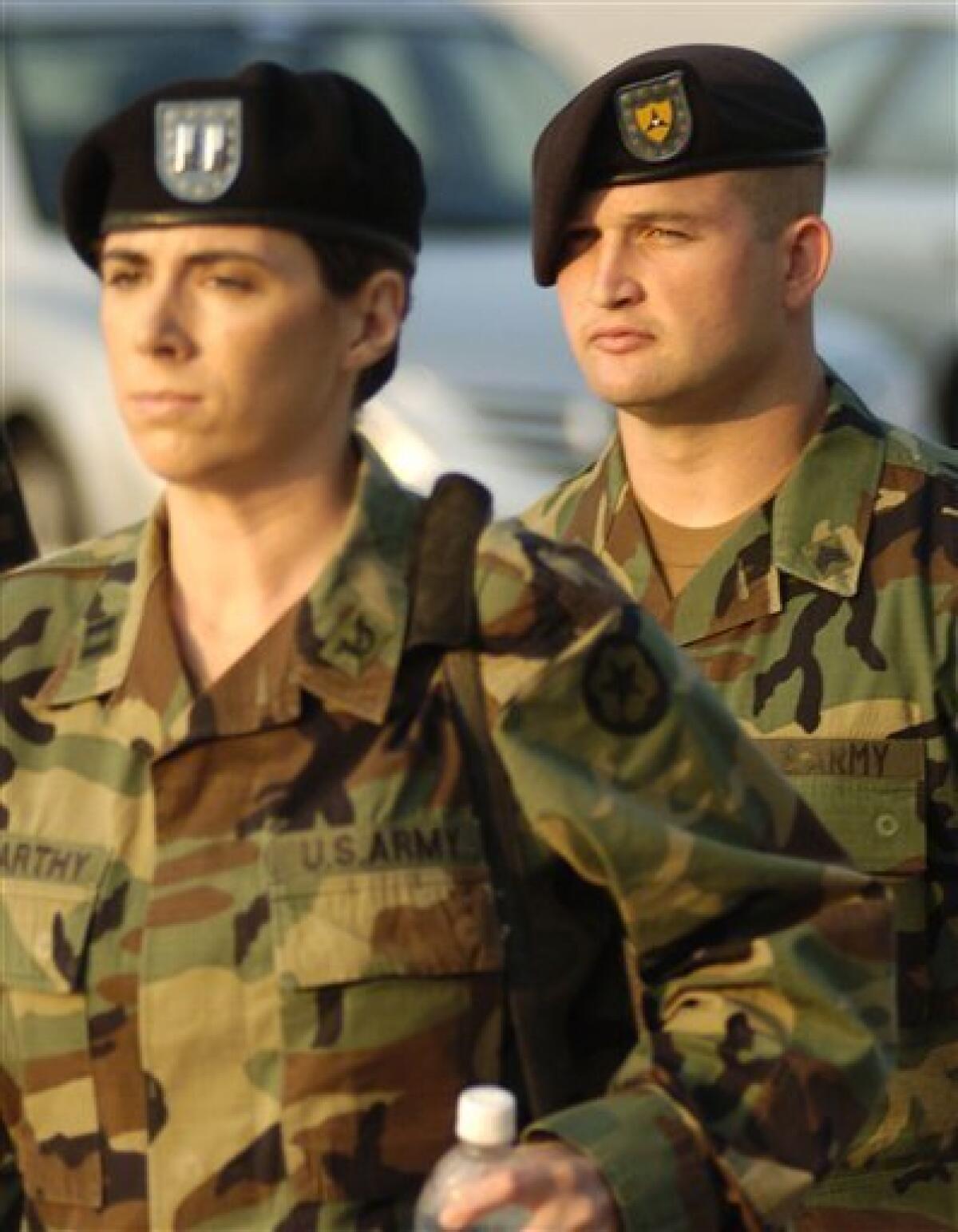Army dog handler appeals Abu Ghraib conviction

Lawyers for a former Army dog handler convicted of abusing detainees at Abu Ghraib prison in Iraq told the U.S. military’s highest court Thursday that he was only following orders when he let his dog bark and lunge at prisoners.
Former Sgt. Michael J. Smith’s case was the first one in the Abu Ghraib abuse scandal to go before the U.S. Court of Appeals for the Armed Forces in Washington.
Smith, of Fort Lauderdale, Fla., was among 11 low-ranking soldiers convicted after photographs of naked Abu Ghraib detainees in humiliating positions were revealed in 2004. Smith was convicted of charges that included maltreatment of prisoners and conspiring with another dog handler in a contest to try to frighten detainees at the Iraqi prison into soiling themselves. There was also a separate indecency charge for directing his dog to lick peanut butter off other soldiers’ bodies.
He was sentenced in 2006 to 179 days in prison and a bad-conduct discharge, and was reduced in rank to private.
Smith, who was not in the courtroom, is asking the appeals court to overturn his sentence and his conviction on two of the counts. Although he has already served his prison term, he could benefit from a reversal of the bad-conduct discharge, which affects things like veterans’ benefits. Smith also had his pay reduced as part of his sentence, so he may stand to recoup lost wages.
Smith’s lawyer, Army Reserve Lt. Col. Jonathan Potter, said the trial judge failed to tell the jury to take into account that Smith might be following a legitimate order.
“He was the low man on the totem pole,” Potter said.
A lawyer for the government, Army Reserve Maj. Karen J. Borgerding, said that even if Smith received an order to let his dog get close to prisoners without a muzzle, any trained dog handler would know that order was illegal.
“When I say in close proximity I don’t mean in the same room, I mean in the face if the detainee, inches away – possibly even taking off his hood,” Borgerding said. “It’s inherently illegal, and every dog handler would know it’s inherently illegal. That is never allowed. That is maltreatment.”
The judges gave no indication when they would rule. They typically take about three months after oral arguments to issue their decisions.
The court is scheduled to hear a second Abu Ghraib appeal Wednesday. Spc. Sabrina D. Harman, of Lorton, Va., was convicted of participating in an episode where wires were placed in the hands of a hooded detainee who was made to stand on a box and told he would be electrocuted if he fell. She was also was photographed giving a smiling “thumbs-up” beside a pyramid of naked, handcuffed detainees.
In her appeal, Harman is arguing that the evidence against her was insufficient.